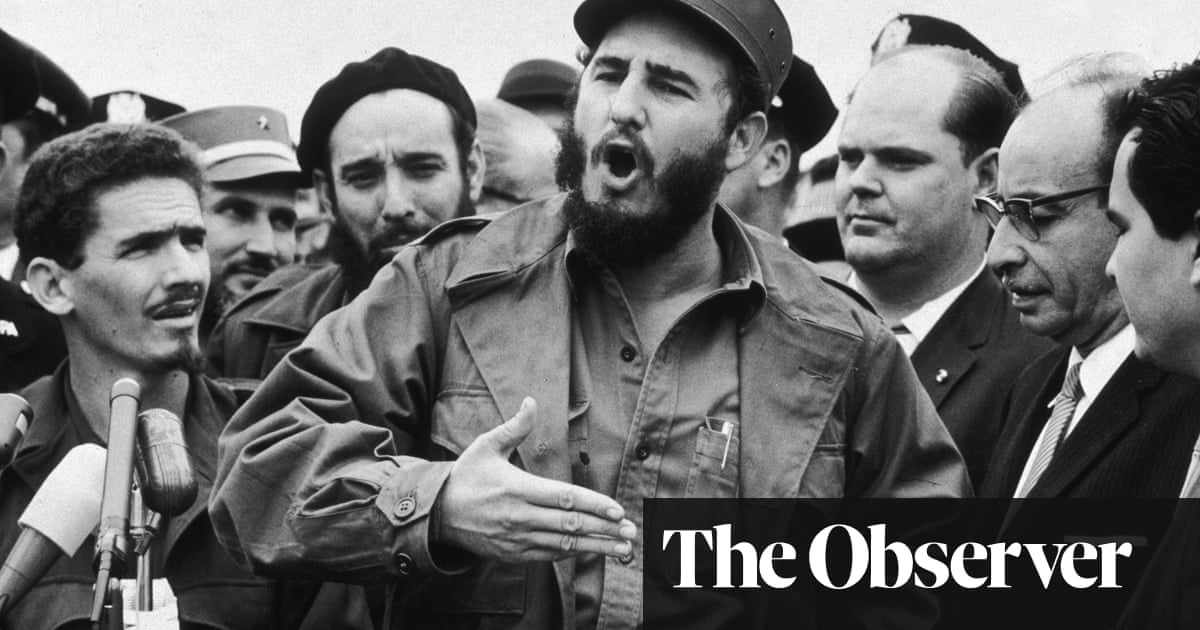There has actually been no scarcity of United States tries to eliminate foreign foes through extremely suspicious legal or ethical ways

T he United States federal government is no complete stranger to the dark arts of political assassinations. Over the years it has actually released intricate strategies versus its enemies, from dispatching a chemist equipped with deadly toxin to attempt to get Congo’s Patrice Lumumba in the 1960s to planting toxin tablets (similarly unsuccessfully) in the Cuban leader Fidel Castro’s food.
But the eliminating of Gen Qassem Suleimani , the leader of Iran’s elite military Quds force, remained in a class all its own. Its uniqueness lay not a lot in its approach– what distinction does it make to the victim if they are devitalized by aerial drone like Suleimani, or performed following a CIA-backed coup, as was Iraq’s ruler in 1963, Abdul Karim Kassem?– however in the brazenness of its execution and the obviously overall neglect for either human effects or legal niceties.
“The United States merely isn’t in the practice of assassinating senior state authorities visible like this,” stated Charles Lister, senior fellow at the Middle East Institute in Washington. “While Suleimani was a harsh figure accountable for a good deal of suffering, and his Quds force was designated by the United States as a terrorist company , there’s no getting away that he was perhaps the 2nd most effective guy in Iran behind the supreme leader.”
Donald Trump’s celebrating tweets over the killing integrated with a sporadic effort to validate the action in either global or domestic law has actually caused the United States being implicated of the extremely criminal offenses it usually pins on its opponents. Iran’s foreign minister, Mohammad Javad Zarif, knocked the assassination as an “act of worldwide terrorism”.
Vipin Narang, a political researcher at MIT, stated the killing “wasn’t deterrence, it was decapitation”.
There has actually been no lack of United States interventions over the previous half-century that have actually tried– and in many cases prospered– in eliminating foreign enemies through extremely suspicious legal or ethical ways. The nation has actually confessed to making no less than 8 assassination efforts on Castro, though the genuine figure was most likely much greater .
William Blum, the author of Killing Hope: United States Military and CIA Interventions Since World War II, indicates a list of American sins from intrusions, battles, toppling of federal governments, assassinations to abuse and death teams. “It’s not a lovely image” is his blunt conclusion .
The CIA was considered to have actually run so amok in the 1960s and 70s that in 1975 the Church committee examined a various attempted assassinations on foreign leaders consisting of Lumumba, Rafael Trujillo of the Dominican Republic, Vietnam’s Ngo Dinh Diem and, naturally, Castro. In the fallout, Gerald Ford prohibited United States participation in foreign political assassinations.
The restriction didn’t last long. Given that 1976 the United States has actually continued to be taken part in, or implicated of, efforts to remove foreign leaders.
Ronald Reagan released battle raids in 1986 targeting Libya’s Muammar Gaddafi. As just recently as 2 years ago North Korea declared that the CIA attempted to assassinate its leader, Kim Jong-un.
But the majority of the interventions in the contemporary age have actually been concealed and performed underneath the radar. Where they have actually been declared openly, they have actually tended to target non-state stars running in militias or militant groups like Islamic State.
Barack Obama and Trump both declared big public relations success when they manage the killings of Osama bin Laden and the Isis leader Abu Bakr al-Baghdadi , respectively.
By contrast, till Trump the United States has actually tended to combat shy of carrying out obvious assassination efforts on state stars linked to sovereign routines. Suleimani himself is a case in point.
In 2008, the CIA worked hand in glove with the Israeli intelligence service the Mossad to target Imad Mughniyah, a senior Hezbollah leader, for assassination. In the course of their efforts they had the opportunity of getting not just Mughniyah however likewise Suleimani in a single drone strike. In the end, the operation was aborted due to the fact that the United States federal government obstructed it on premises that it might seriously have actually destabilised the area.
Despite such reticence, Mary Ellen O’Connell, a teacher of global law at the University of Notre Dame, draws a direct line in between earlier United States administrations and the convention-shredding unpredictability of Trump. She stated the introduction of the unmanned drone in 2000 put the United States on a domino effect towards the present crisis.
The very first release of a drone as an assassination tool was bought by Bill Clinton in an effort to get Bin Laden. The very first effective “targeted killing”, as it is now called, came not long after, performed by the Bush administration in Yemen.
Obama acquired Bush’s extensive usage of drone killings and increased their frequency significantly , while looking for to provide a veneer of legal respectability with the secret internal “ targeted eliminating memos “. Those files argued that drone assassinations were validated under global law as self-defense versus future terrorist attacks– a reasoning that has actually been extensively challenged as a misreading of the UN charter.
“Since Obama there has actually been a consistent dilution of worldwide law,” O’Connell stated. “Suleimani’s death marks the next dilution– we are moving down a slope towards a totally lawless circumstance.”
O’Connell included that there was just one action left for the United States now to take. “To entirely neglect the law. Honestly, I believe President Trump exists currently– his only argument has actually been that Suleimani was a bad person therefore he needed to be eliminated.”
Read more: https://www.theguardian.com/us-news/2020/jan/04/us-political-assassinations-history-iran-suleimani


Recent Comments